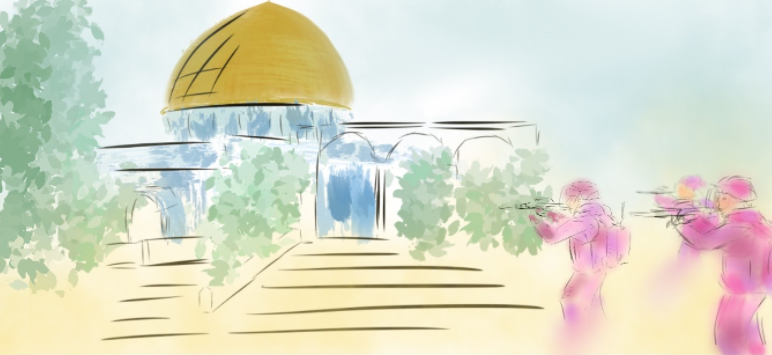By Danique de Laat
While the month of June has shown us the growing support all around for the queer community, there is one recurring downside this Pride Month has yet again brought us: Pinkwashing. Pinkwashing is the concept of using LGBTQ+ issues to profit financially or to distract the public from negative actions. This is often done by companies selling rainbow coloured merchandise or giving their online logos a rainbow background during Pride Month. These steps are taken to create a sense of support for the LGBTQ+ community. Importantly, companies who do this, often do nothing to protect their queer employees or support queer organisations. The gain lies entirely in cashing in on the pink dollars or trying to cover up other big mishaps such as a major oil-spill, by creating a positive image during the month of June. Rainbow coloured logos are not only a phenomenon around companies who simply do nothing to promote gay rights, the strategy is also used by companies in America who actively support anti-gay politicians by funding their campaigns.
Companies use this to create an image of progressiveness and tolerance towards the public. This is not to say that all companies who support LGBTQ+ are participating in the pinkwashing strategy. It is those companies that saw the opportunity for making more money or covering up scandals by copying the promotion of others, while doing nothing substantially to actually support the community.
Pinkwashing in politics
But corporations are not the only one trying to gain from the fabrication of a pro-queer image. Pinkwashing has also entered the political sphere.
In many western countries, such as the Netherlands, pro-LGBTQ+ standpoints are used to justify an anti-immigration rhetoric. The PVV (Party for Freedom), for example, uses LGBTQ+ – targeted violence in the Netherlands as a way to justify their extremist stance against every aspect of Islam. Wilders (party leader of the PVV) tends to speak of protecting LGBTQ+ rights whenever it gives him an opportunity to attack Muslims, but does not suit the action to the word. During a vote in the lower house on a resolution regarding the anti-homo law in Hungary, the PVV (together with other right wing parties FvD, JA21 and Christian party SGP) did not vote in favour. While one could argue that parties might wish to refrain from voting on resolutions regarding other countries, the PVV, similarly did not support the accord proposed by the COC in 2017 to promote the position of the LGBTQ+ community in the Netherlands.
Israels pinkwashing
Israel uses the same strategy of pinkwashing, but in a different context. Israel puts an enormous focus on the pride parade in Tel Aviv to create an image of progressiveness and modernisation to market it as a friendly tourist destination and divert attention from their occupation and violence in Palestine. Especially after the unlawful evictions of Palestinians in East Jerusalem and the following airstrikes in May, Israel was quick to celebrate pride in June to show the world that they are the “civilised, progressive, inclusive” one. To divert attention from its colonialism, military occupation and the escalation of its apartheid regime, Israel put extra attention in its pride parades and marketing of Tel Aviv as a gay heaven. Showing the world how the parade in Tel Aviv, the queer haven of the middle east, was funded by the state. And simultaneously painting Palestinians as the “regressive and violent” ones.
Israel has been working on rebranding itself as a progressive state surrounded by Islamic countries for years. In 2005 the Israeli government developed a plan to “rebrand” Israel. The aim was to improve the image of the country on the world stage, by downplaying the conflict with Palestine and instead focussing on the “hip and modern” parts of Israel. In 2009 the Israeli government and several organisations started to include the branding of Tel Aviv as a gay heaven within the Rebranding Israel campaign. In 2010 Israel launched a new marketing campaign specifically to “brand Tel Aviv as an international gay vacation destination”.
While I cannot downplay the importance of LGBTQ+ acceptance, and I cannot deny that Israel has been more progressive than most other countries in the world, we should not take this as a good enough reason to let Israel off the hook for its abhorrent treatment of Palestinians.This includes human rights violations and violations of international law such as forcible transfer and evictions of Palestinians from their own homes.
Conclusion
Both corporations and politicians use pride for profit to try to brush scandals and human rights violations under the rug. They hope the proud month of June can make the public forget about their other actions year-round.
While I cannot deny that queer people generally have more freedoms and rights in Israel than in other Middle Eastern countries, the issue here is the framing of relative queer rights as the pinnacle of civilisation and therefore an excuse for the actions of the colonialist Israeli apartheid regime. You cannot exchange one human right for the other.
Edited by Gunvir Patel, artwork by Danique de Laat

